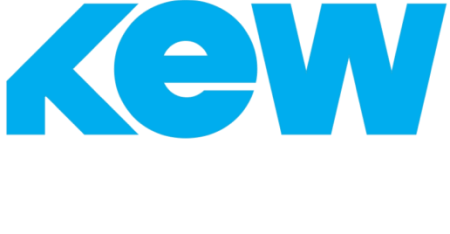Setting up office in DIFC (Dubai International Financial Centre) or ADGM (Abu Dhabi Global Market) isn’t just about plugging in cables. Missing an approval can delay your office launch by weeks or even result in fines. From data protection registration to TRA approvals, every step matters.
Both the DIFC and ADGM run under independent regulations. Each has a Registration Authority for company setup and its own financial regulators: the DFSA in DIFC and the FSRA in ADGM.
DIFC / ADGM Regulatory Permissions
IT Infrastructure and Data Protection compliance are two key areas to consider when planning your IT and business needs.
IT Infrastructure Approvals:
You won’t usually need a permit to lay network cabling, but your setup must support compliance standards for whichever sector you’re in (Finance, law, healthcare etc). Think about secure data storage, audit trails and comprehensive record keeping.
In practice, DIFC and ADGM both expect you to follow their official ICT guidelines (such as DIFC’s Property Management ICT standards). Submitting your IT design to the free zone’s Facilities or Property team is often required before work begins.
Data Protection Compliance:
Both free zones have their own set of Data Protection Regulations, which mirrors the General Data Protection Regulations (GDPR). Both areas have their own authorities that handle the IT and Data permissions.
To ensure compliance you may need to:
- Appoint a Data Protection Office (Either in house or outsourced) if you are processing sensitive or large-scale data.
- Register with the DIFC/ADGM data protection regulator and submit forms about how you process personal data.
- Clear processes for how the data is collected, stored and shared.
Important: Registration typically involves submitting a data processing notification form within 30 days of incorporation, and non-compliance can result in fines.
Third Party Approvals:
If you are working out of a services office or a co-working space, check whether you need approval from the building management for IT cabling and hardware installs.
Clarification may be needed on where data is stored and if local approval is needed, for certain services, such as VoIP, cloud storage or cross-boarder data hosting.
Documentation
Getting your permissions sorted in advance can help avoid compliance problems further down the line. Document how you handle IT data from day one to help save time with audits, due diligence and client on boarding.
Documenting your IT and data processes from day one can save time when it comes to audit, client due diligence checks or when applying for regulatory licences.
Pro tip: Keep a central compliance binder (digital or physical) with contracts, approval letters, and data flow diagrams. This speeds up regulator audits and investor due diligence.
Landlord and Building Management
Even if your business and IT setup are fully compliant with the DIFC and ADGM regulations, most office buildings and shared spaces have their own set of rules around what you can do with your IT set up, that will also require approvals and access permits for external contractors.
Key points to consider:
- Cable Routing Permissions: Running cables through ceilings, floors or riser cupboards usually always requires building management approval. This is to help avoid clashes with fire safety systems, HVAC, or other infrastructure.
- Server Room Design: If you plan to have a dedicated server or comms room then it is expected to submit drawings for approval. This is for building management teams to check the cooling, fire suppression and electrical load.
- Backup Power: Installing generators or UPS systems isn’t just a technical choice, which involve a sign off from management to ensure your setup doesn’t impact the building.
Typical timelines for approvals range from 2–8 weeks, so factor this into your office launch plan.
Telecommunications and Internet Service Providers (ISPs)
When it comes to setting up your business telecoms and Internet, there are additional layers of approval to consider in the UAE.
Key points to consider
- TRA Oversite: The TDRA (Telecommunications and Digital Government Regulatory Authority) governs the telecom services in the UAE, meaning you may need additional licensing from them depending on your business model.
- ISP Permissions: Adding new fibre lines, phone lines or extra bandwidth requires coordination with the building services management and the approved Internet Service Provider. In certain cases, permits are required for new cables running to your office.
- Numbering & VoIP: If you plan to use VoIP services, ensure they are on the approved list. Using unlicensed services can cause service disruptions.
- Leadtime: Waiting for a fibre install can often cause delays in a new office being set up, so ensure you have extra time for the scheduling around this.
Note: In practice, Etisalat and du are the main ISPs for DIFC/ADGM. Non-approved VoIP services (like WhatsApp calls) are blocked in the UAE.
Local IT Regulatory Bodies
Beyond its free zone rules and building management approvals, the UAE has its own national standards for IT cybersecurity. Depending on the industry, these may apply alongside DIFC or ADGM requirements.
Key points to consider
- NESA Compliance: The National Electronic Security Authority (NESA) sets out the UAE’s national cybersecurity framework. Certain sectors like government contractors, financial services and critical infrastructure, must align their IT policies with NESA standards.
- Data Localization: Some types of sensitive information may be required to stay within the UAE. This means you may not be able to host or transfer all the data to overseas servers, especially if you handle regulated or high-risk information.
Additional Considerations
Permissions and approvals aren’t just about ticking boxes; they need to relate back to your business. Here are some additional points to consider before you commit to an IT setup:
- Do you have the right business license?
Ensure your license covers the IT and digital operations you plan to run. Approved activities will be listed in the DIFC or ADGM license. - Will you handle personal data?
If you’re storing or processing personally identifiable information (PII), you may need to register with the free zone’s data protection regulator and possibly hire a Data Protection Officer (DPO). - Are you entering fintech or crypto?
ADGM has a clear framework for cryptocurrency and digital asset businesses. These activities require specialist approvals that go beyond a standard license. - What about cross-border data transfers?
If your operations involve transferring data outside the UAE, you may need to comply with data transfer mechanisms recognized by the DIFC or ADGM. - Do you plan to scale?
Some approvals, like cloud hosting or outsourcing IT services, may require additional notifications or consent if you expand beyond your initial scope. - Have you considered cybersecurity compliance?
Depending on your industry, you may need to align with frameworks such as NESA or international standards like ISO 27001 to meet both regulatory and client expectations.
Final Thoughts
Navigating these layers of approvals and regulations can feel overwhelming, especially when they differ between DIFC, ADGM, and wider UAE requirements. At Kew Solutions, we’ve helped businesses of all sizes set up compliant, scalable IT systems that align with both operational needs and regulatory frameworks. You can focus on growing your business, while we keep your IT setup smooth, secure, and compliant.








